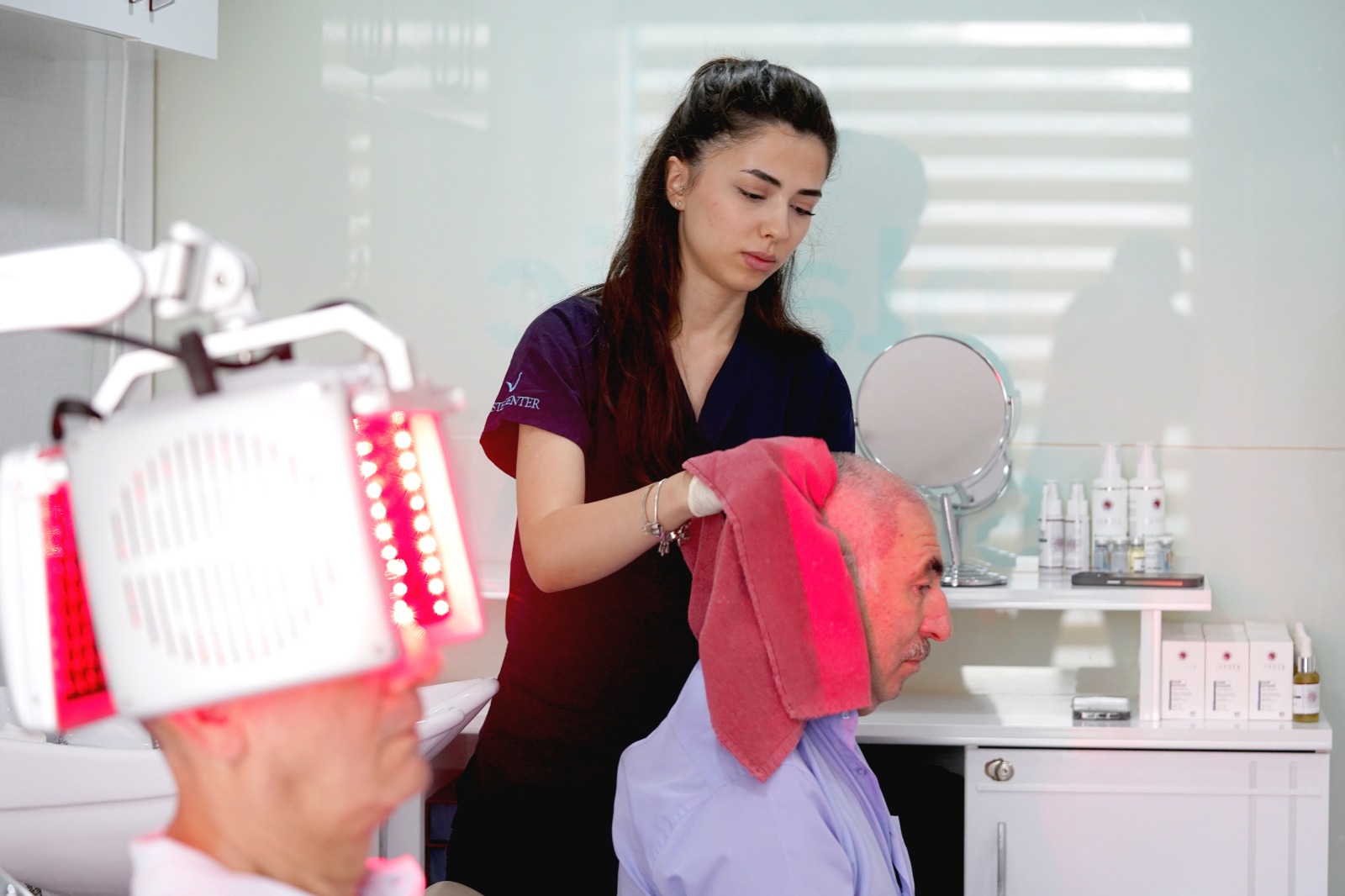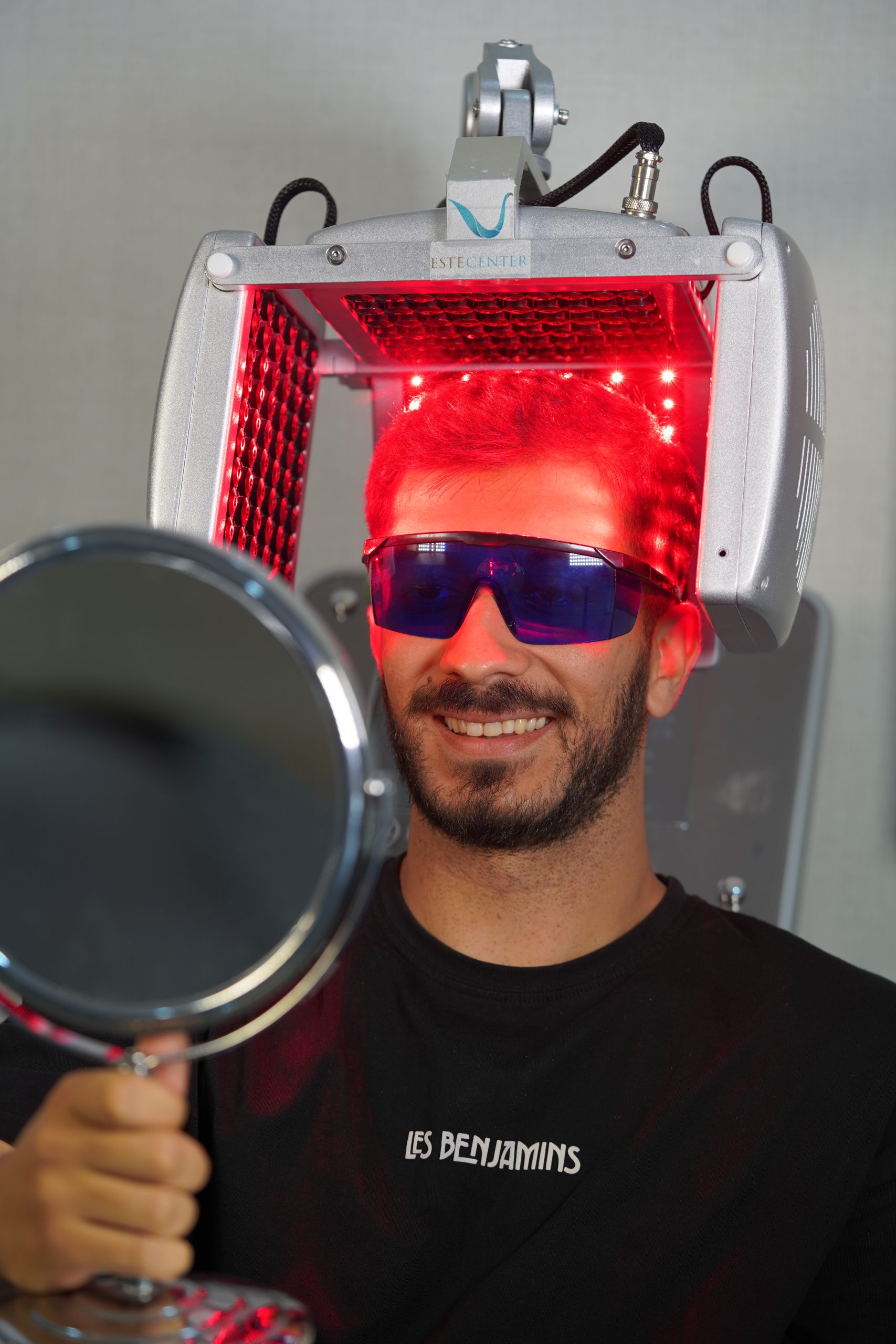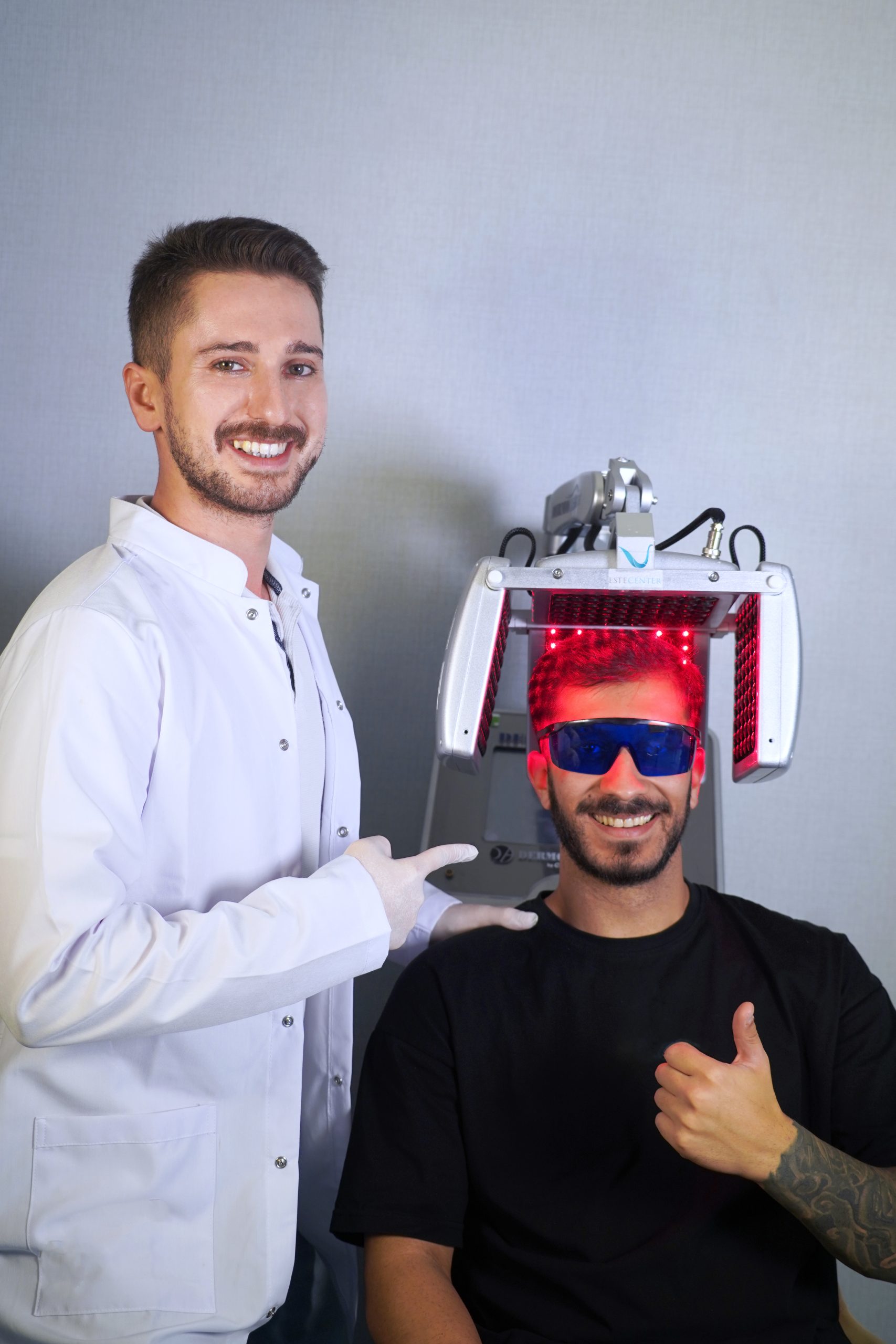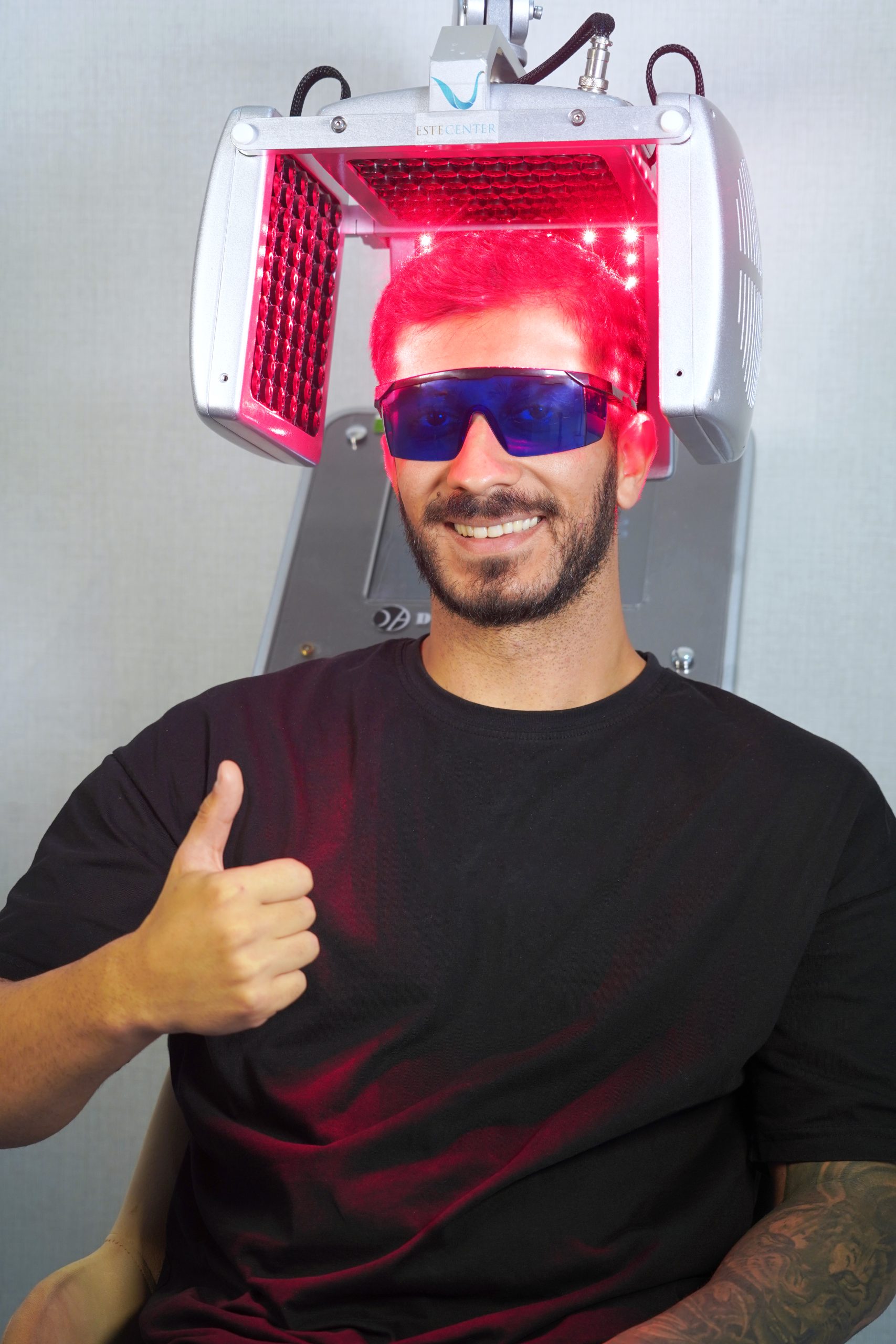
Dealing with hair loss and thinning can be very overwhelming. Laser hair surgery in Turkey might be just exactly what can help you. It’s an advanced aesthetic treatment. The innovative technology improves blood circulation and boosts hair growth in balding areas.
Laser Hair Transplant Procedure
Laser surgery for hair is performed by a specialist dermatologist after a thorough hair analysis in multiple sessions. The frequency depends on your hair structure and degree of loss or thinning. It involves opening up tiny channels in the hair area with a dermapen, injecting a serum for hair growth and nutrition and then using a laser device to target the inactive capillaries under the scalp. This speeds up the blood circulation in the area and increases the effectiveness of the serum.

Laser Surgery For Hair Growth
Laser hair surgery is an aesthetic application that is designed to improve the health of weak hair that could be due to various reasons and stimulate hair formation in thinning areas. It has been very successful in preventing hair shedding and giving hair a healthier look.
Laser Hair Surgery Cost In Turkey
Laser hair surgery price varies according to the area to be treated, hair type, level of hair loss, personal needs and the total number of sessions. It works miraculously for strengthening existing hair or improving the density for a fuller look by transplanting hair to balding areas.

How Successful Is Laser Hair Growth?
Anyone above the age of 18 can go for laser hair transplant surgery to treat hair loss, have healthy hair, and regain self-confidence. It is suitable for both women and men to achieve amazing hair health and appearance. After all, hair plays a huge role in your visual aesthetics.
Is Laser Hair Transplant Painful?
It is highly recommended to consider certain factors before and after laser surgery for hair growth for successful results. Every individual has to undergo an examination to check if they are fit for the treatment before it starts. Mention to the specialist if you are on any medication and stay away from smoking, alcohol, and blood thinners like aspirin. Avoid washing your hair in the first week after getting the procedure done.
The recovery period is determined by your specialist post which you can wash your hair with the given lotion. Shield your scalp from the sun with a comfortable and breezy hat and definitely stay away from alcohol and other unhealthy habits while you are on your way to healing. It is also recommended to stay away from physical exertion to facilitate the recovery process.

Can Hair Grow Thicker After Laser Transplant?
The good news is that it is a permanent procedure. Hair laser permanently stops hair loss and prevents any future shedding thereby giving the desired healthy hair at the earliest. You can trust it as the best solution to hair loss problems that make you lose your self-confidence.
Meet Our Doctors

